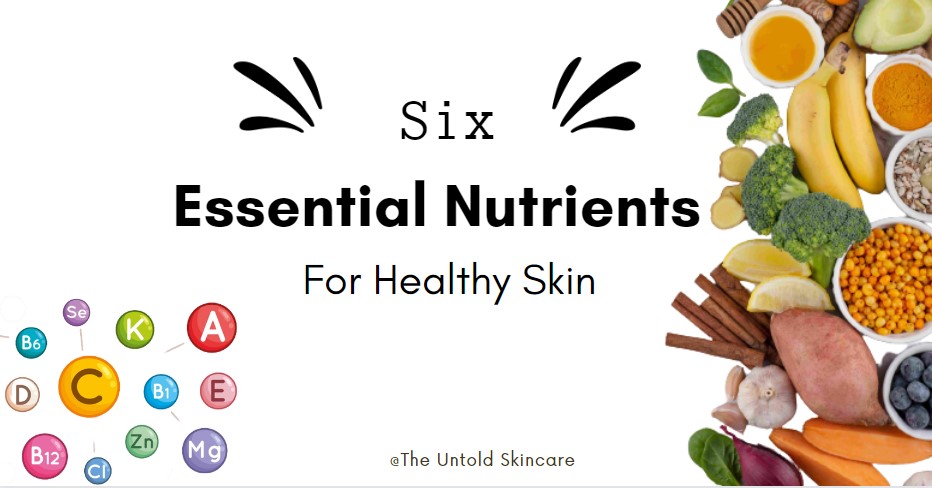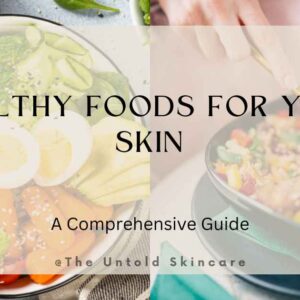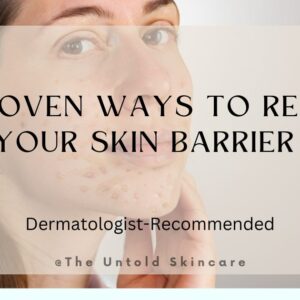When it comes to skin health, what you put on your plate is just as important as what you put on your face.
No matter how much money you spend on skincare products or how closely you adhere to your skincare routine, you won’t achieve brighter, healthier skin if you don’t eat the foods that your skin needs.
A person who has always eaten well is less likely to experience any sort of skin problems. You become what you eat. And this is true in every sense.
Why Nutrients are Necessary for Skin Health?
Nutrition is the key, not just for a healthy body but also for healthy skin. It is necessary to preserve the skin barrier and safeguard your skin from dangerous microorganisms. Some nutrients also help to prevent UV damage to your skin and delay the signs of premature aging.
The skin regularly renews itself, shedding old cells and replacing them with new ones. Nutrients supply the basic building blocks needed for cell growth and repair. The formation of structural proteins like collagen and elastin, which maintain the skin’s integrity and give it a youthful appearance, is facilitated by these nutrients.
Not only this, proper nutrients also help in maintaining skin’s moisture balance. Skin irritation and inflammation are two major contributing factors to acne and other skin issues. Proper nutrients also address this issue.
6 Most Essential Nutrients for Healthy Skin:
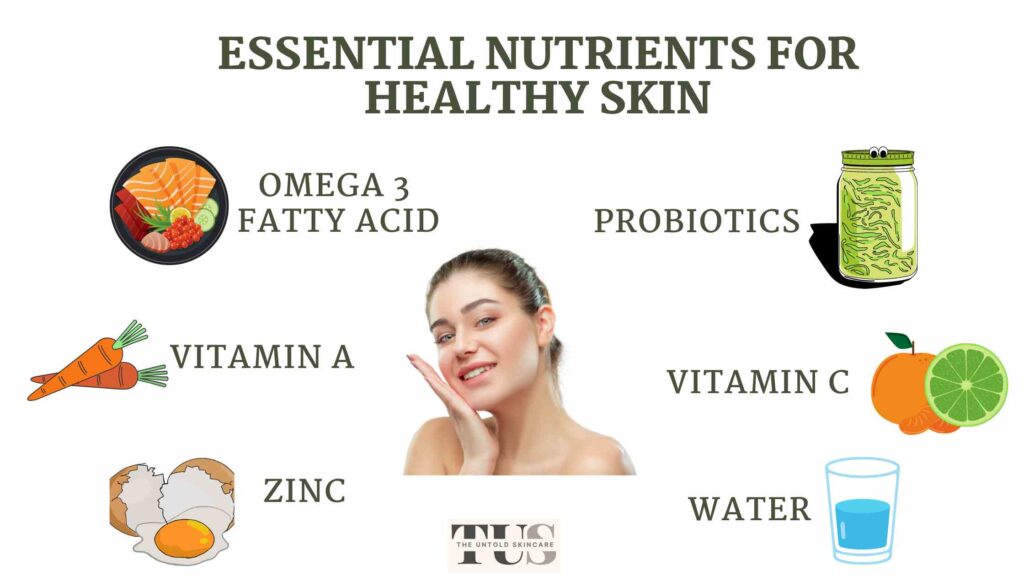
A healthy diet gives your skin the nutrients it needs for optimum protection, structure, and function, supporting your skin’s overall health. Here are the six most essential nutrients needed for having good skin:
Omega-3 Fatty Acids
These fatty acids are probably the most needed nutrient for your skin. They can really help make your skin soft, supple and healthy if consumed on a regular basis.
There is very little that Omega 3 fatty acid can’t do for your skin. It helps maintain the skin’s moisturization level and also reduces skin inflammation. Studies have shown that they can also protect the skin from the effects of harmful UV rays.
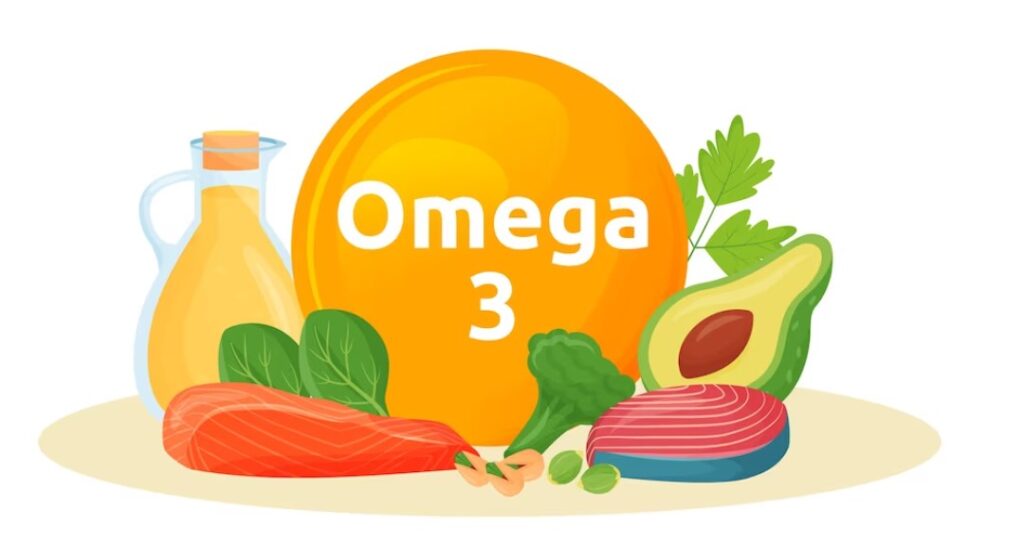
These fatty acids also maintain skin hydration and reduce premature skin aging. They promote skin cell growth and help in increasing collagen production.
Some of the richest sources of omega-3 fatty acids are fish, avocados, cod liver oil, chia seeds, flax seeds, walnuts, etc.
The recommended daily intake of Omega 3 fatty acid is about 1500 mg for men and 1000 mg for women. One tsp of chia seed or about 20 gm of walnut daily is more than enough.
Vitamin A

The process of cell growth and regeneration greatly benefits from vitamin A. As a result, there are always new skin cells to replace the damaged ones. It encourages the formation of new skin cells and also supports the synthesis of collagen. This helps in keeping the skin firm removing fine lines and wrinkles.
Vitamin A is also a proven acne-treating agent. Retinoid, a popular skincare agent is nothing but a vitamin A derivative. People facing premature aging, pigmentation, breakout, and dark spots can get huge benefits from daily intake of vitamin A.
Vitamin A is abundant in nature and you can easily fulfill the required amount of daily dose. A few rich sources of vitamin A are sweet potato, pumpkin, carrot, eggs, mangoes, papaya, broccoli, etc.
The required daily dose of vitamin A is 900 mg for men and 700 mg for women. Just 100 gm of carrot or sweet potato can provide you with the required dose.
Probiotics
Probiotics in simple terms, are the living bacteria that support the friendly bacteria in the human body. It has been found to have a significant ability to prevent and treat skin-related issues like acne, dermatitis, rosacea, eczema, and whatnot.
The human body consists of trillions of microorganisms (bacteria, viruses, yeast, and fungus) and our gut is the largest human microbiome. When the gut microbiome is out of balance, it literally affects every system of the body.

When our gut has a greater amount of bad or unhealthy microbiome, it increases toxins (pathogens) in the body. This lack of detoxification can be clearly seen on the skin.
Probiotics help balance out the gut microbiome. This may sound like a minor task but it has unimaginable benefits in the entire human body, especially on skin.
Besides, probiotics also significantly improve the skin’s protective barrier and maintain the moisture level of the skin. Since it reduces the density of bad bacteria in the skin, this helps in reducing irritation and inflammation of the skin which is a major cause of breakouts and acne,
Fermented foods such as sauerkraut, kimchi, yogurt and apple cider vinegar are great sources of natural probiotics. Add a few of them to your diet on a regular basis and you will definitely start seeing results in few days.
Besides, you can also take probiotic supplements. You can also find probiotics in some skin care products and can use them topically but I won’t recommend doing that.
Another key is to eliminate foods that feed pathogens or bad bacteria such as refined carbohydrates, sugar and sweeteners.
Vitamin C
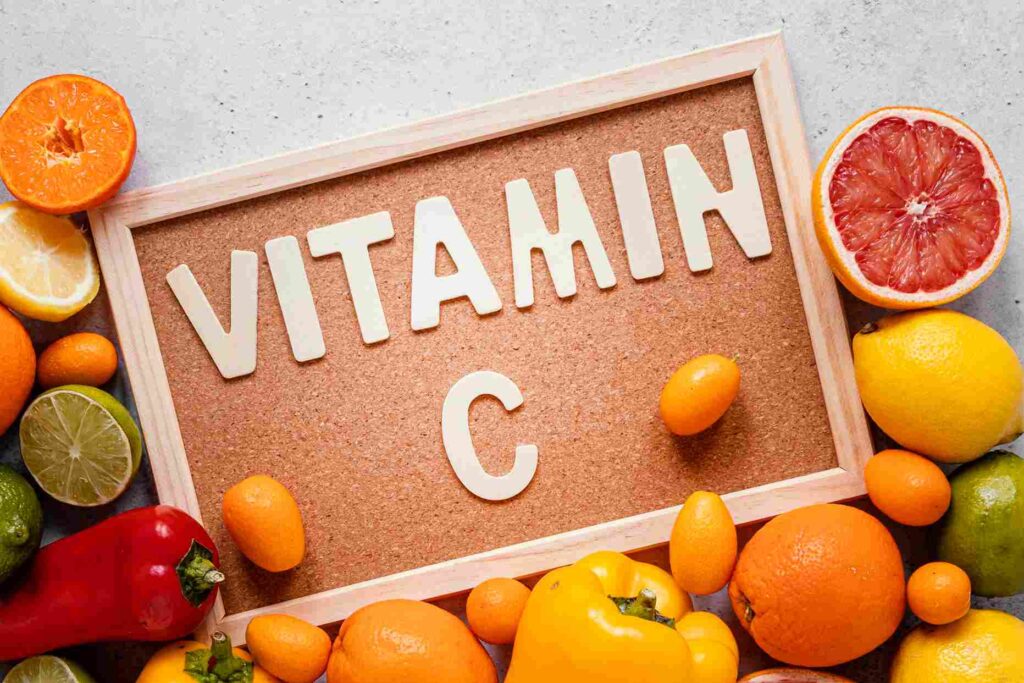
When it comes to making your skin radiant, more bright and youthful, vitamin C always tops the chart. It is fully loaded with antioxidants that help to destroy free radicals and promote skin tissue repairment.
Vitamin C is a proven ingredient to improve the overall skin texture and maintain a glowing complexion. Studies have shown that vitamin C also reduces melanin production which helps in fading dark spots and skin pigmentation.
Another key benefit of vitamin C is that it promotes collagen production resulting in more tighter and firm skin. Collagen production simply can’t happen in absence of vitamin C. It also protects skin from sun damage and helps wounds heal more quickly.
The recommended daily dose of vitamin C for men is 100 mg and for women is 80 mg. One orange or half a lemon or one small Amla (Indian Gooseberry) can provide the required daily dose of vitamin C.
An extremely important thing about vitamin C is that it is quite easily available in nature and hence you are more likely of getting the required daily dose even from a normal diet. But this doesn’t guarantee that the skin is getting it.
Thus topical application is always preferred in the case of vitamin C. You can add a good quality Vitamin C serum to your skincare routine. It is preferred to apply it in the morning after having a morning face wash.
Also Read: 7 Best Fruits for Skin Health
Zinc
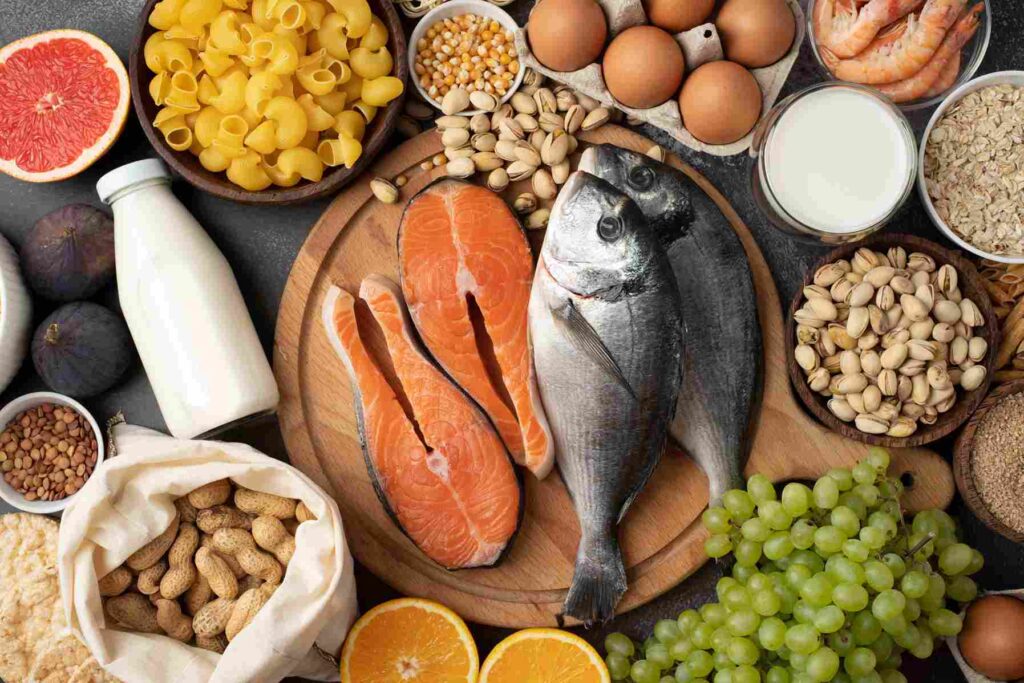
There are not much of talks going on about the benefits of zinc in skin health but it offers many significant benefits for the skin. The first one is wound healing. It improves the ability of the skin to repair itself and lessens redness and inflammation thanks to its antioxidant and anti-inflammatory qualities.
Zinc is also said to regulate oil production and reduce excess sebum. It thus reduces the chances of clogged pores and possible breakouts.
Zinc has been studied more for its photo-protection property. Studies have shown that it offers excellent protection from sun damage and UV radiation. This is why you’ll see zinc oxide as an important ingredient in most sunscreens.
Zinc can be consumed internally through diet or zinc supplements or can also be used topically in the form of skincare products. It is extremely effective both ways. But the best way could be to consume it internally by incorporating zinc-rich foods into your diet.
There’s a wide variation in recommended daily dose of zinc, differing from person to person depending on number of factors. However one must not exceed about 40 mg per day. If you ask me a number, I would say 15-20 mg a day.
Spinach, broccoli, eggs, berries, pumpkin seeds and bananas are some zinc-rich foods that you can add to your diet.
Water

The benefits of water for the skin are definitely not unknown to anyone. However, people often overlook this most inexpensive skincare solution.
From detoxifying the body to clearing the acne, reducing skin inflammation to nourishing it inside out, drinking enough water can do it all. Enough water in the body also helps to get the most out of foods that you eat.
Proper hydration helps in maintaining skin elasticity and balances water oil content on the skin. It also helps significantly in maintaining a healthy gut by flushing out toxins from the body. You are also less likely to get wrinkles and fine lines on your skin if you drink enough water.
The recommended water intake per day is usually 2-3 liters. But if you really want to make a difference in how your skin looks, add a few more liters to it and go past 4 liters every day.
You may try adding a couple of extra ingredients to your water, which is something I can highly recommend. Lemon or mint can be added for additional advantages. Depending on your preferences, you can also try ginger, honey, cinnamon, cloves, and apple cider vinegar.
How to Include All These Ingredients in Your Diet?
Your nutrition needs to be one of your top priorities in your skincare journey.
You need to make sure you are getting all the nutrients listed above by planning your diet accordingly.
Add carrots to your lunch and dinner for your daily dose of Vitamin A.
Consume 3–4 tablespoons of sauerkraut along with 1 tablespoon each of chia and flax seeds. This would provide you with the necessary amount of omega-3 fatty acids and probiotics. You can add it to your breakfast or even lunch.
Drink two glasses of lemon water a day to get your vitamin C. Consume at least 3 eggs a day and add vegetables such as broccoli and spinach to your diet.
Drink no less than 4 liters of water a day.
I highly recommend drinking homemade fruit smoothies every day in the morning.
Try avoiding high-carbohydrate foods as much as you can.
When you have to eat something you don’t particularly enjoy, a helpful advice is to make smoothies and simply drink them. Every time I had to consume beetroots, I used to test this formula.

